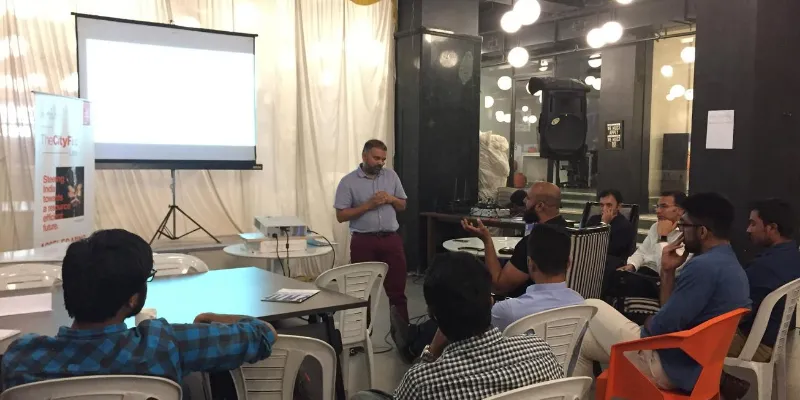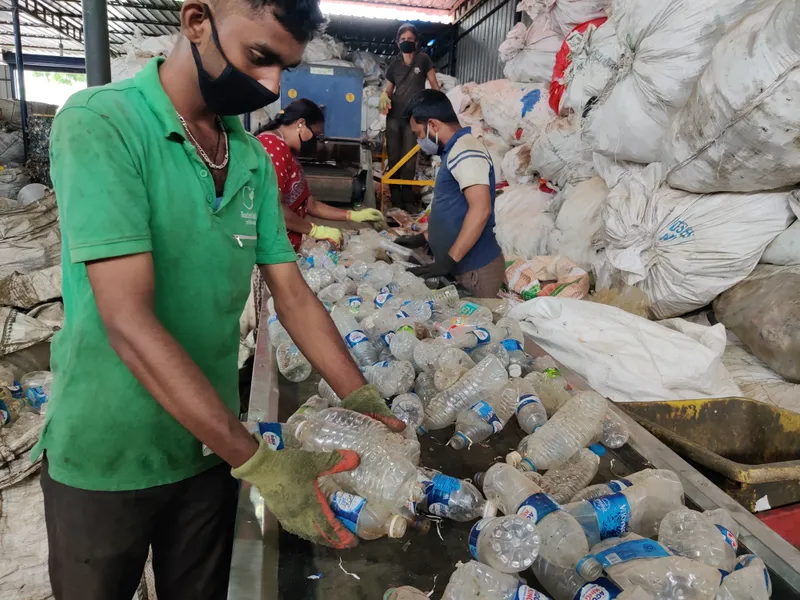Investor support, consumer awareness, government inclusion key to boost innovation ecosystem post-COVID
While MSMEs and local entrepreneurs stepped up to provide essential services during COVID-19, their innovation necessitates reciprocation from investors, government, and communities, if they are to be sustained and scaled.
The COVID-19 health crisis, a two-and-a-half-month national lockdown, and the ensuing attempts by the people to gradually return to work and reboot the economy, have displayed the general sense of responsibility and resilience of our communities, institutions, and enterprises alike.
During this period, several micro, small, and medium enterprises (MSMEs) and startups have been struggling to remain viable, with some experiencing a liquidity crisis and others operating despite prominent health risks as cases continue to rise every day.
Encouragingly though, some MSMEs have stepped up to provide essential services, while also repurposing and innovating solutions to help tackle the pandemic.
From waste management organisations that have continued to collect and manage waste through the lockdown, to clothing companies that have repurposed fabric to make face masks, entrepreneurs are rising to the occasion.
At a time when global supply chains struggled, several small and medium entrepreneurs scaled up local businesses to offer essential products and services to citizens, thereby supporting communities and providing them safe livelihoods.
These innovations by local entrepreneurs necessitate reciprocation from other stakeholders including investors, government, and communities, if they are to be sustained and scaled.

Investing in impact
Today, when liquidity poses a key challenge for many entrepreneurs, those working in the spaces of urban service delivery have an opportunity to build on two popular narratives: impact through sustainability and livelihoods and nationalism through their localised production and supply.
Their continued resilience during the lockdown will only increase their appeal to the more cautious post-COVID investor. Further, urban service enterprises often apply innovative Internet of Things, artificial intelligence (AI), and machine learning (ML)-based solutions to address resource efficiency, which are finding increasing traction with investors in the COVID-19 impacted economy.
This might also be the right time for impact investors to reassess their definition of impact and the metrics applied towards measuring it. According to Nagaraja Prakasam, angel investor and partner at impact investment firm Acumen, social businesses are the ones that are supporting communities.
“These businesses have been more decentralised and impactful, and quite rightly should be attracting interest from impact investors.”
Of late, the view of sustainability as profitable has made many impact investors behave more like their mainstream venture capital and private equity counterparts, but Prakasam believes these new impact narratives might renew motivation to invest in the space.
Consumer awareness and responsibility

Photo Credit: Hasiru Dala Innovations
Essential services like waste management have continued through the lockdown, with waste collectors placing themselves at considerable risk by offering their services. While the pandemic might eventually end, health and hygiene concerns for waste management employees persist.
Capitalising on prevailing consumer awareness of contagion, waste management companies like RaddiConnect and Hasiru Dala Innovation are conducting webinars to help educate citizens on proper waste management and disposal, with the hope of having a more permanent, positive impact on waste segregation habits. Others have adopted social media campaigns to bring attention to the sanitation workers risking their lives to provide services.
Further, with up to a 135 million jobs possibly affected by the current economic slowdown, we are already seeing cost cutting and reduced household consumption.
Resource- and cost-efficient urban service solutions could offer an additional avenue for cautious consumers to save money while adopting environmentally sustainable habits.
With smart energy and water management solutions saving between 30-50 percent of cost and offering quick returns on investment, sustainability might find new appeal to price-sensitive customers.
Finally, communities also have a new lens to view their consumer behaviour. While ecommerce giants like Amazon and Flipkart offer unbeatable prices, local ecommerce entrepreneurs have showed agility in responding to consumer needs, scaling production through their local supply chains and offering delivery of essential goods quickly. Apart from applauding the efforts of these essential workers, it might be time for consumers to consider their ethical responsibilities in patronising sustainable local businesses even after the health crisis has subsided.
Inclusion and support from government
Municipalities in large cities have been dependent on the private and informal sector for waste management, but in excluding the recycling industry from the definition of “essential services”, have limited channels for waste disposal.
Waste management organisations are quickly running out of both: storage space for waste, as well as revenue from recycling to continue supporting their operations. With the government’s extent of reach , they need to ensure that these essential service value-chains are kept operational.
The government has also been tapping into the efforts of entrepreneurs - from seeking innovative solutions through online challenges to partnering with entrepreneurs to develop tests, vaccines, and medication. However, organisations that have partnered with government to test and implement some of these solutions have also faced hurdles in securing contracts.
Challenges in the existing government procurement process means that even a successful pilot might struggle to scale. In the long run, procurement reform is key to helping government create a channel for real world application of the solutions they are able to source through their challenges.
While the Government e-Marketplace (GeM) portal has been taking steps towards offering a more transparent and accessible procurement process, issues of mounting dues and limited state participation persist.
Finally, in terms of financial support, the stimulus packages and finance schemes offered to MSMEs is woefully inadequate. Most entrepreneurs fail to qualify for government schemes such as SIDBI’s Covid-19 Startup Assistance scheme, and believe that the Aatmanirbhar Package does little to help them continue operations and avoid layoffs.
While the government has offered grants to support MSME efforts to tackle the coronavirus, these largely focus on existing products and solutions, and do little to help innovation and application of new research. With a history of long overdue payments and government funds drying up, MSMEs are now experiencing a lot of uncertainty and hesitation in continuing to work with the government.
Therefore, if the innovation ecosystem is to ensure the provision of seamless urban service delivery, a few key steps need to be taken:
- Redefine the impact metrics and funnel more private funding in areas that fill important service delivery gaps. The new Social Stock Exchange being designed to help social enterprises raise funds offers one possible avenue to address this.
- Re-evaluate consumption patterns and preferences so as to support local, sustainable businesses.
- Make it easier to on-board solutions that have demonstrable success through public process reform and help build financial resilience in businesses that provide essential services.
Edited by Megha Reddy
(Disclaimer: The views and opinions expressed in this article are those of the author and do not necessarily reflect the views of YourStory.)







